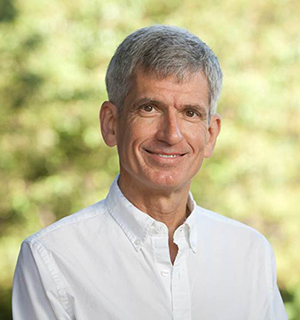"What do you think about the concept of the ATTR research school?"
"The idea that ATTR embodies is outstanding and even essential. One of the great problems that the academy faces in the twenty-first century is created by disciplinary boundaries and specialization. In themselves, the clear separation of distinct areas of inquiry, and the development of particular and specialized tools of research and analysis, are unavoidable and largely positive aspects of the growth of Western university culture. But they can all too easily produce overly specialized scholars and teachers who are uninformed both about parallel work in other disciplines and the place of their own subject in the broader world of the arts and Sciences," Powell explains.
He elaborates: "Many people would agree with what I have just written in theory, and many individual academics are admirably broad-gauge in their interests, but to address the problem in a serious fashion calls for more than individual effort: it requires institutional structures that facilitate exchange among scholars across disciplinary boundaries and provide support, particularly for young scholars, to enable a deeper engagement with other areas of study and methods of analysis. ATTR is designed to do exactly this. The scholars who make up the core ATTR faculty, and the funding agencies that are making ATTR possible, deserve high praise for what they are doing. Let us hope that others will follow their example."
"How important can interdisciplinary perspectives be for research within the fields represented in ATTR?"
"You ask about interdisciplinary work’s value in the fields represented in ATTR. As I understand it, ATTR’s scope is as broad as the humanities in general, so to answer fully would take a book!" Powell says.
He examplifies: "Let me focus on the fields that were best represented at the seminars earlier this summer, theology (including biblical studies) and law. The importance of interdisciplinary work in theology has been clear for a long time: to give only a few of the more recent examples, the cross-fertilization between archaeology and Hebrew Bible studies, the impact on New Testament scholarship of modern research into memory, the insights that sociological methods are giving us into the development of early Christianity. My field, law, has been I think much slower to reach beyond our own narrow domain, but that is changing rapidly, and in turn I believe that legal scholars’ knowledge of and practical engagement with social practices involving authoritative texts and institutionalized interpretation has important things to offer other fields. As I listened, for example, to Hans Petter Graver’s brilliant lecture on legal interpretation I found myself thinking about the many ways in which this sort of sophisticated legal analysis of language could be of value to theologians, philosophers and others – think, for example, about how the idea of “canon” has become an important one in literary studies."
"How did you find the sessions you participated in at the ATTR summer school?"
"I thoroughly enjoyed all aspects of the ATTR summer school. The lectures were uniformly excellent, and I learned a great deal. I thought the conversations generated by the papers and responses presented by the graduate students showed the value of encouraging young scholars to take an interdisciplinary approach to their work at a very early point in their careers. I hope that future summer schools and other events will benefit from greater participation by people working in philosophy and other fields, but I think ATTR should regard its first summer school as a complete success," says Powell.
"How was your stay in Oslo?"
"Oslo is wonderful! I’ve been trying to devise an argument that the University really needs to foster transnational as well as interdisciplinary work by hiring someone who writes and teaches in United States constitutional Law", says Powell, and adds: "– if I can come up with the argument I know where we can find a willing candidate!"
